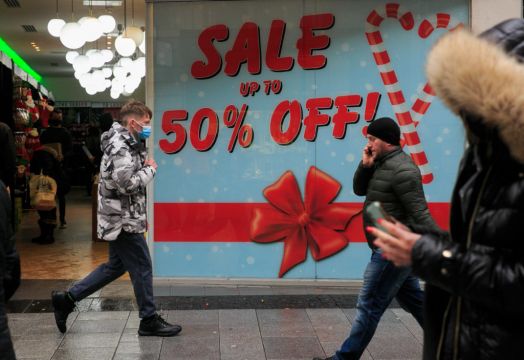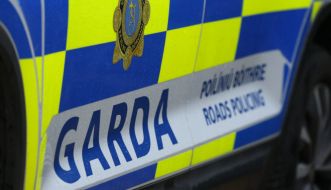The Department of Health has been notified of 922 new cases of Covid-19 today, with eight additional deaths.
Of today's cases, 438 were men, 477 were women and 68 per cent were under the age of 45. The median age of cases was 33-years-old.
There were 337 cases recorded in Dublin, 73 in Cork, 70 in Limerick, 56 in Wexford and 43 in Galway. The remaining 343 cases were spread across all remaining counties in the Republic.
As of 8am today, there were 255 people being treated for Covid-19 in hospital, 22 of whom were in intensive care and 37 patients were admitted within the last 24 hours.
Chief medical officer Dr Tony Holohan again urged the public to reconsider their social interactions over the coming days, saying: “This Christmas, the best present you can give your loved ones is to strictly adhere to the public health advice.”
“Unfortunately, none of the indicators of this disease are showing encouraging signs. Ireland now has the fastest growing incidence rate in the European Union.
“Stay home, stay safe and stay well. Limit contact as much as you can and ensure you and your loved ones have a happy and safe Christmas,” Dr Holohan added.
Northern Ireland
Eleven more people with Covid-19 have died in Northern Ireland, the region's Department of Health has said.
There have also been 841 new confirmed cases of the virus in the last 24-hour reporting period, a sharp increase from recent days.
This comes as Deputy First Minister Michelle O’Neill urged people to follow new lockdown regulations which start from St Stephen's Day after confirmation a new Covid-19 variant is present in the North.
“We were advised that this variant is likely to have been present here for some time,” she said.
“Unfortunately this is the confirmation we have been expecting and that’s why it is critical we all get the maximum benefit from the lockdown that starts on St Stephen’s Day.
“There is no current evidence to suggest that this current variant of Covid causes more serious illness or a higher mortality rate or that it affects vaccines and treatments. Vaccines have already started rolling out to those healthcare staff working on the front line and to residents in our care homes.
“My appeal is for everyone to strictly follow the Covid regulations and the public health advice and be very careful in all that we do over the Christmas period.”
The North's chief scientific officer Prof Ian Young said he was “very concerned” about the new variant because it is transmitted more easily.
Prof Young warned if the variant becomes the dominant form it could push the reproduction number (R-rate), a key indicator in the spread of coronavirus, up to 1.8.
“At the moment R is probably sitting between 1 and 1.2, and if we had the variant form and we were all behaving in the same way, R would be closer to 1.6 and 1.8, and that would have severe consequences,” he told BBC Radio Ulster’s Stephen Nolan Show.
Return to school
Prof Young said if the variant becomes the dominant form, it would be very unlikely that schools could be kept open.
He said he did not believe that at present the variant was a “major form” in Northern Ireland, but said he was confident there is a small number of cases.
The Stormont Executive issued guidance earlier this week in response to the emergence of the variant, which recommends against any non-essential travel between Northern Ireland and both Great Britain and the Irish Republic.
The Executive also agreed to advise anyone arriving in Northern Ireland, who is staying for more than 24 hours, to isolate for 10 days. It applies to anyone who has arrived since December 22nd.
Meanwhile, Northern Ireland is set to enter a new lockdown on St Stephen's Day, of which the first week will be the toughest so far imposed in the region.
A stay-at-home curfew will be in place from 8pm to 6am for that week. – Additional reporting: PA







